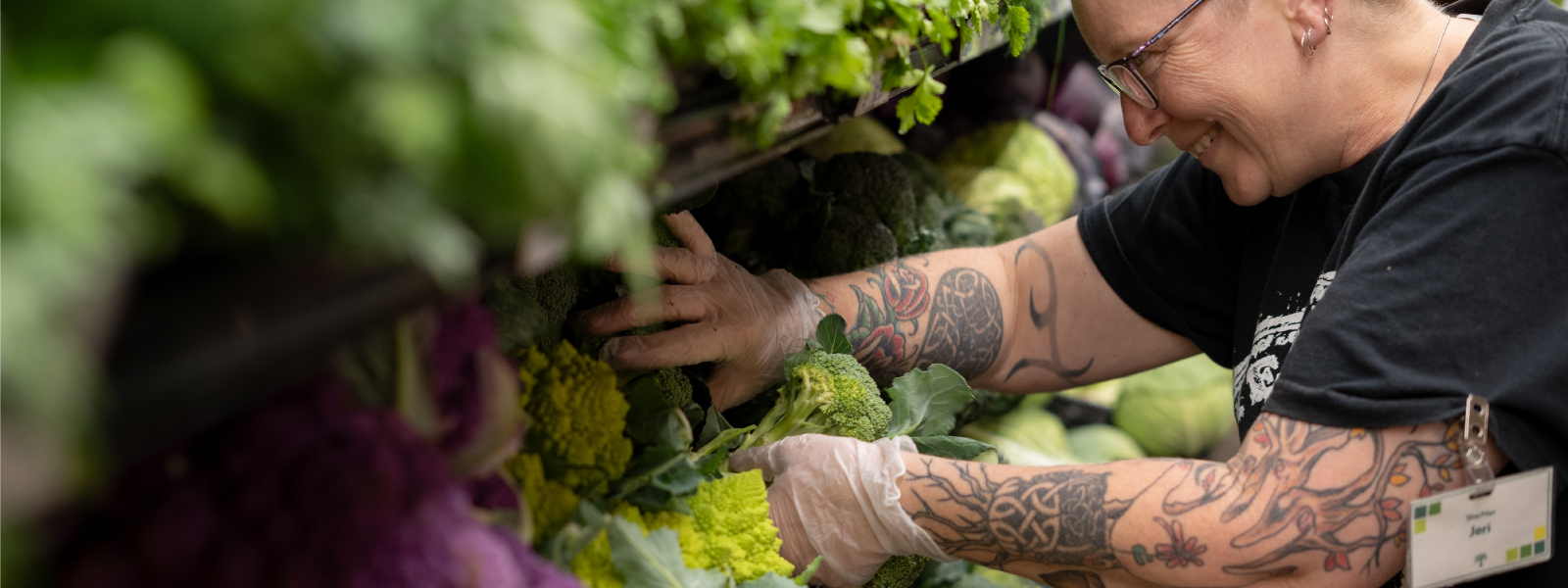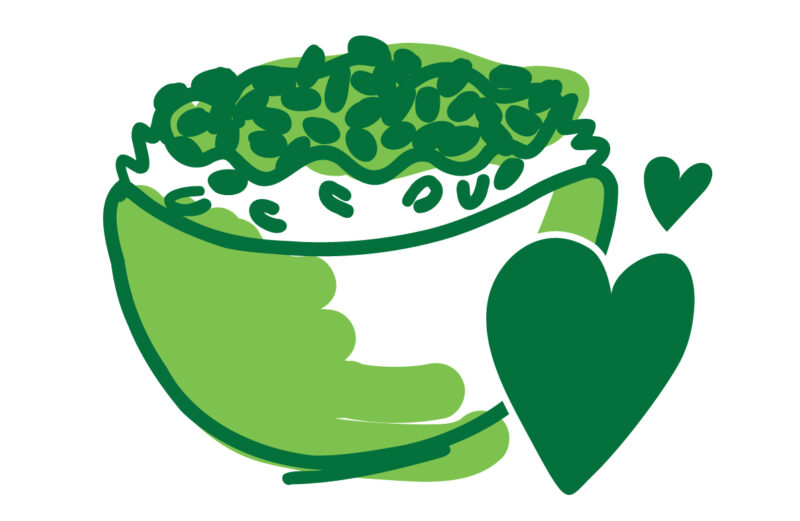We’ve all forgotten that yogurt in the back of the fridge, or missed the window to cook up our rainbow chard before it started turning. Food waste happens. In fact, according to the U.S. Department of Agriculture, it’s estimated that between 30- 40 percent of food is wasted somewhere along the supply chain; that’s a lot! So how can we help? At Seward Co-op, reducing food waste is an important way we work towards our Ends statement to sustain a healthy community that has equitable economic relationships, positive environmental impacts, and inclusive, socially responsible practices. Learn about the steps Seward Co-op takes to minimize food waste year-round, and get a few tips to help you reduce food waste at the co-op and at home.
Working Together to Reduce Food Waste
Keeping it Fresh
At Seward Co-op, one of the first actions we take to reduce food waste is to place orders for fresh foods with care and consideration. “Buyers are constantly pulling movement reports, taking inventory daily, reassessing our top sellers and trying to buy only what we will sell that day,” says Jess Nimm (she/they), Assistant Produce Manager at the Franklin store. “It’s a delicate balance between maintaining just enough back-stock to replenish the shelves before our next delivery, and sitting on a mountain of over-ordered product.”
Proper training is key, and managers in fresh departments ensure staff receive it. “This goes for stocking as well,” explains Demeter Brock-Montgomery (she/her), Produce Manager at the Friendship store. “Thorough training on proper display sizes and how they should be stocked helps immensely towards the produce maintaining freshness and appeal.”
Donating and Composting
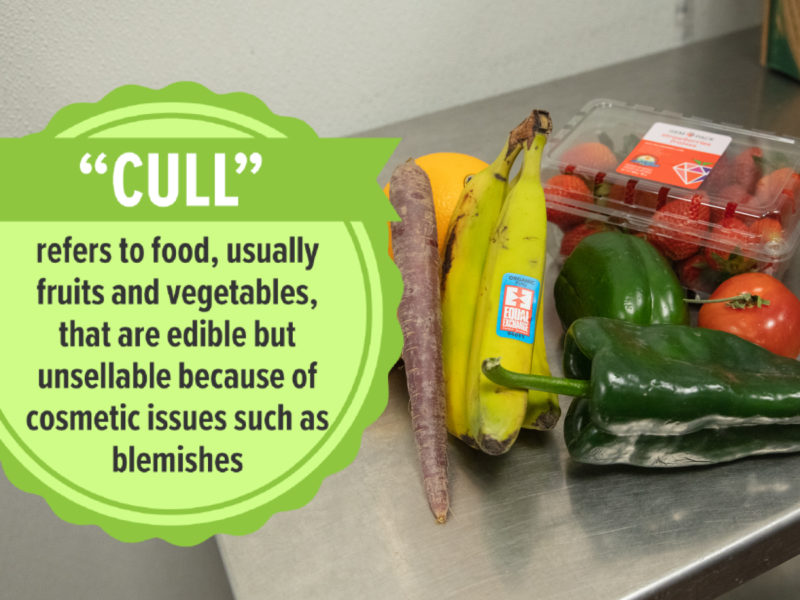 So what happens to what we don’t sell? In Produce, if an item is near expiration date or has a superficial blemish on it, it’s bagged and the price is reduced. Produce that’s deemed edible but unsellable—such as a broken cucumber or carrot—is offered for free to staff in “cull” in the back rooms. Cull extends to all departments, from Grocery to Deli and more. Seward Co-op also donates culled and misdelivered produce to a handful of local organizations with food shelves, some on a weekly or more-than-weekly basis. As for the food that’s not donated or sold? As much is composted as possible, with staff taking time to remove any tags, stickers, or non-compostable pieces from food.
So what happens to what we don’t sell? In Produce, if an item is near expiration date or has a superficial blemish on it, it’s bagged and the price is reduced. Produce that’s deemed edible but unsellable—such as a broken cucumber or carrot—is offered for free to staff in “cull” in the back rooms. Cull extends to all departments, from Grocery to Deli and more. Seward Co-op also donates culled and misdelivered produce to a handful of local organizations with food shelves, some on a weekly or more-than-weekly basis. As for the food that’s not donated or sold? As much is composted as possible, with staff taking time to remove any tags, stickers, or non-compostable pieces from food.
Putting It All to Use
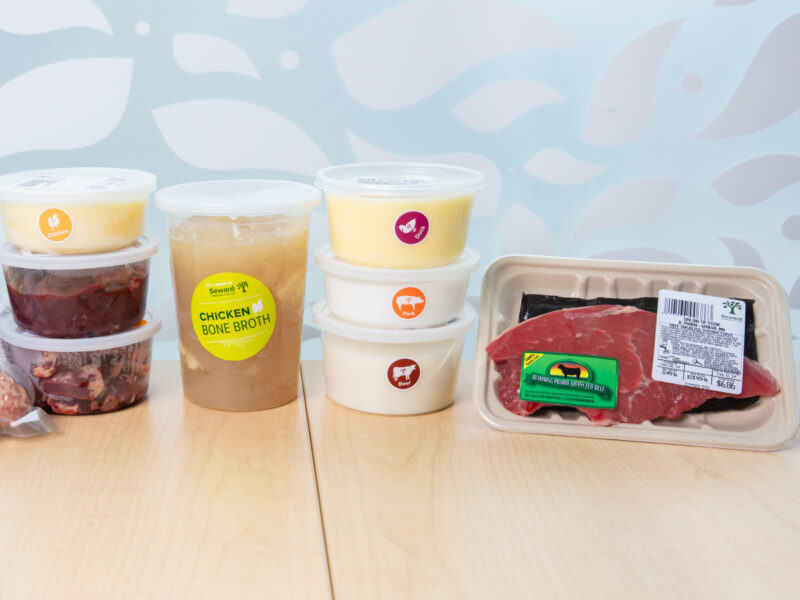 In the Meat and Seafood department, whole animal butchery is the name of the game. This means almost every part of the animal is used, which both prevents food waste and allows for harder-to-find cuts to be available. From house-rendered lard to sausage trimmings and more, Seward Co-op staff are trained to utilize the entire carcass, with the few unusable parts composted. If the department has more meat from a carcass than they anticipate can be sold, the cuts are ground and sent to the Deli while still fresh for use in various Seward-made recipes. Similarly, when Produce has more ripe bananas and avocados than they except to sell, the excess is frozen and used for smoothies at the drink counter.
In the Meat and Seafood department, whole animal butchery is the name of the game. This means almost every part of the animal is used, which both prevents food waste and allows for harder-to-find cuts to be available. From house-rendered lard to sausage trimmings and more, Seward Co-op staff are trained to utilize the entire carcass, with the few unusable parts composted. If the department has more meat from a carcass than they anticipate can be sold, the cuts are ground and sent to the Deli while still fresh for use in various Seward-made recipes. Similarly, when Produce has more ripe bananas and avocados than they except to sell, the excess is frozen and used for smoothies at the drink counter.
Tips for Cutting Back on Food Waste
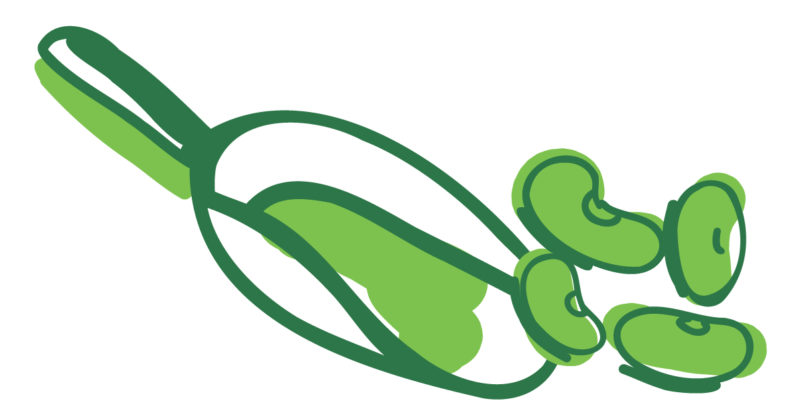
Shop the Bulk department and only use (and pay for!) what you need.
Before making your shopping list, plan out your meals for the week. This helps you avoid buying food you don’t need or won’t use.
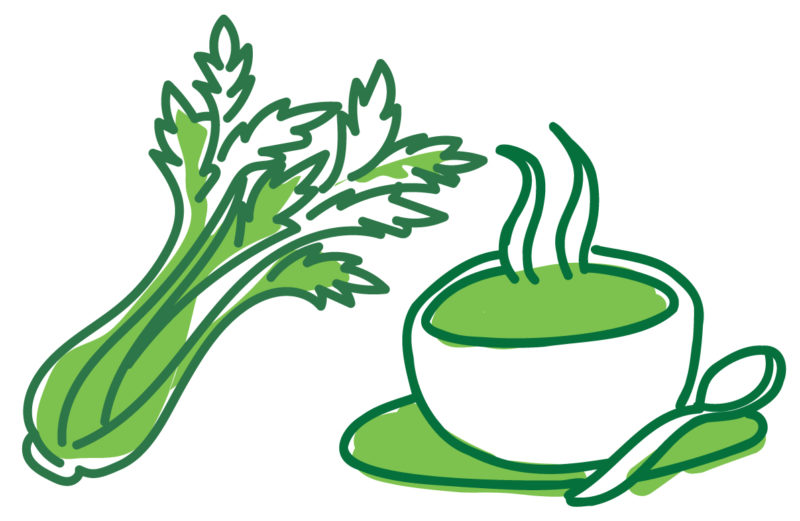
Use parts and pieces from your veggies and meats (like wilty celery stalks and bones) to prepare homemade stocks.
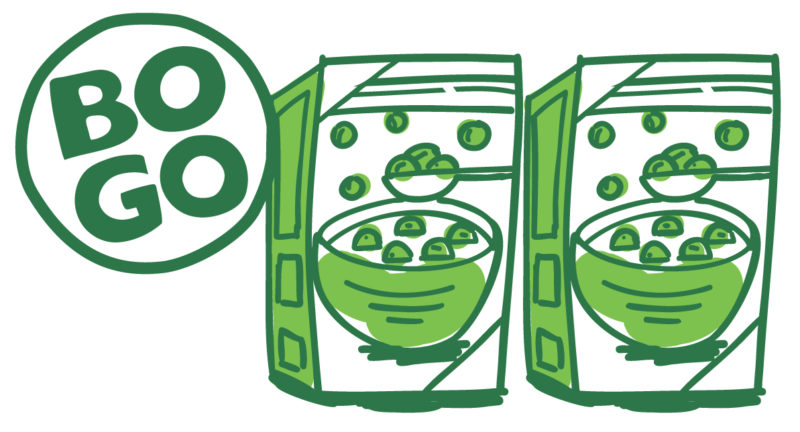
Is the second item in a BOGO deal too much for you to finish? Keep one and donate the other at the front of the store to a local food shelf.
Love your leftovers! Turn them into something new by adding them to soup, stews, pasta or rice dishes.
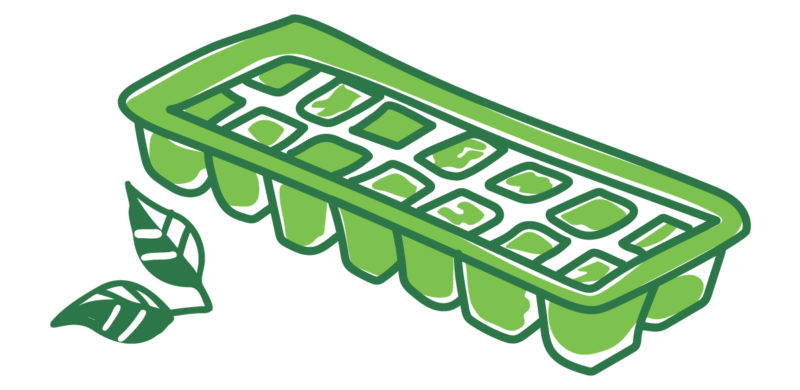
Freeze fresh herbs in broth or oil for easy use in soups and rice; preserve fruits and veggies for long-lasting snacks.
